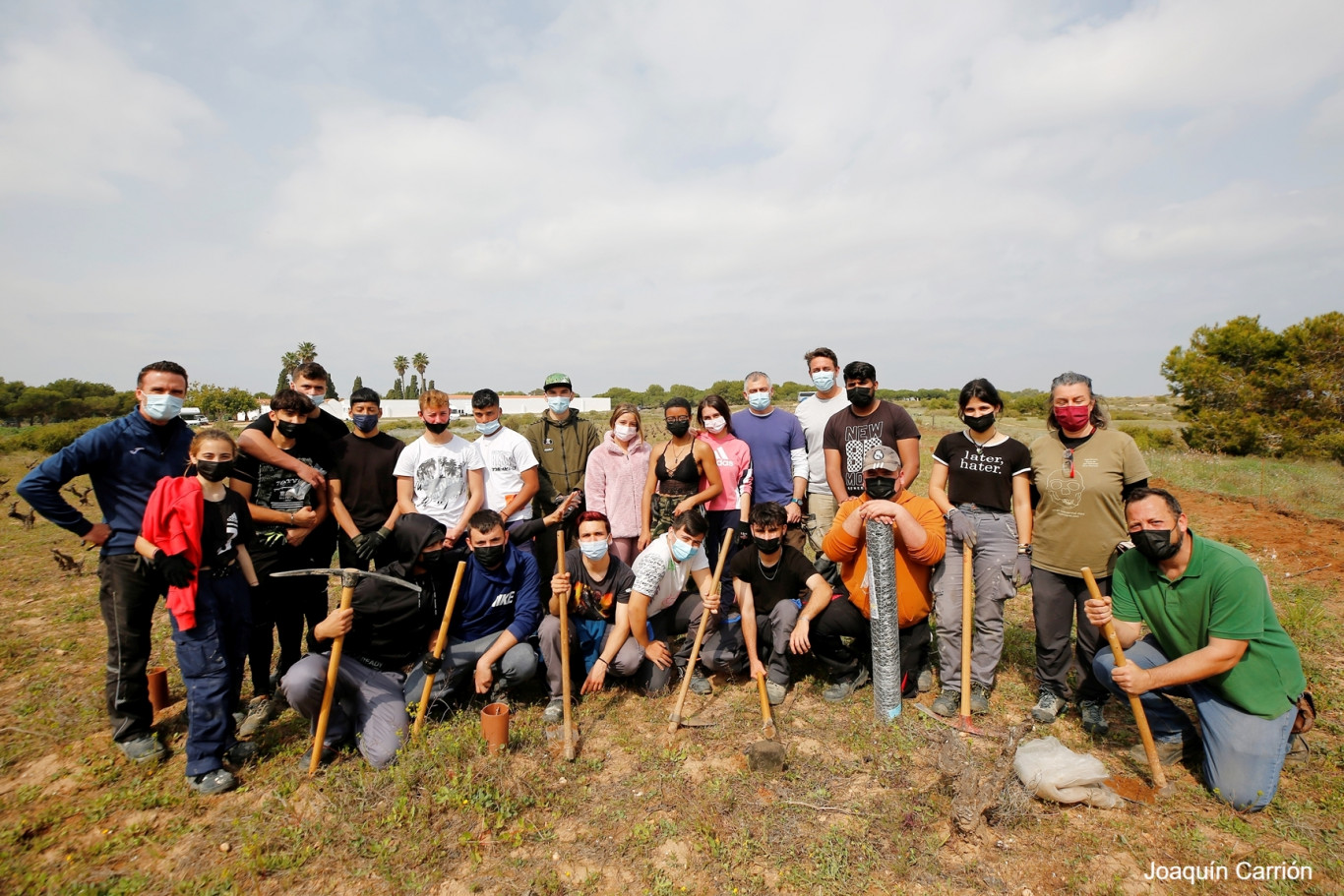The Department of Education together with the IES Mare Nostrum, Agamed and Ars Creatio develop a heritage recovery project for the vineyards in La Mata

La Mata has been a unique wine-growing environment for hundreds of years, exporting at some times in history to countries such as Italy, France, Portugal or Germany. More than 200 hectares dedicated to the vineyard have been documented and currently only about 33 survive. With this educational project, the possibility of reversing a situation of loss of historic vineyards begins and the heritage, history, landscape are valued. , the environment and local ethnography.
This action is about recovering a 4,500 m² plot, in an emblematic spot next to the La Mata lagoon, ceded by Eduardo Paredes Torregrosa and the company Sopla Levante. In addition to the collaboration and advice of this retired viticulturist, the project counts on that of Hilarión Pedauyé Armengol (viticulturist, oenologist and wine producer entrepreneur) and Ana Meléndez Zomeño, as coordinator and promoter of the project. Directly involved in the recovery of vineyards and in the new plantation, 32 students and three teachers, who belong to the Agricultural Vocational Training Department of the IES Mare Nostrum center.
The action establishes new concepts of ecological and conservation agriculture to manage in an innovative way, starting from the traditional practice of matera, in a way that allows progress in viticultural techniques. Likewise, a respectful viticulture is carried out with the environment, discarding the use of chemical compounds of synthetic origin. Only one tillage per year will be carried out and the little vegetation cover in the area will be left to prevent erosion.
The objective of this environmental educational project is to offer students professional training in a space of real action, outside the strictly school environment, as well as to publicize local history and culture, understand the traditional wine-growing landscape of La Mata, publicize and protect the biodiversity of the work area, and reverse the process of heritage loss in relation to the vineyards of La Mata.